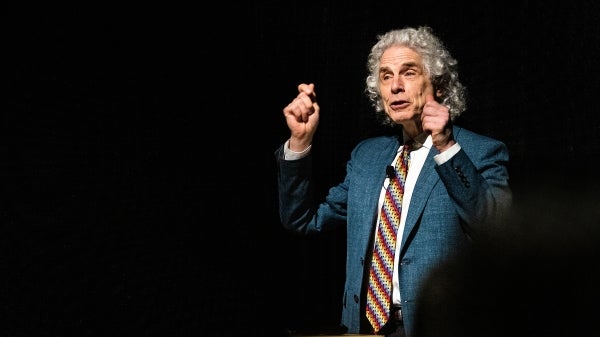New collaboration between ASU College of Health Solutions, Herberger Institute sparks innovative research projects

Faculty researchers from the College of Health Solutions and the Herberger Institute for Design and the Arts have combined forces on interdisciplinary research projects through a new grant program that brings health and design and the arts together to solve various health challenges.
The Collaborative Seed Grant program is a joint venture initiated last summer by the deans of both colleges to fund projects that combine the research and expertise of their respective faculties. College of Health Solutions Dean Deborah Helitzer and Herberger Institute Dean Steven Tepper each pledged $10,000 to establish this competitive research grant and have funded three innovative projects through this new collaboration.
Hearing loss rehabilitation, awareness and prevention through acoustic ecology and virtual reality
Grant: $6,330.
Principal investigator: Sabine Feisst, professor of music, School of Music, Herberger Institute.
Co-investigators: Aparna Rao, clinical associate professor, College of Health Solutions; Garth Paine, associate professor, School of Arts, Media and Engineering, Herberger Institute.
Description: Blending medical research, sound studies, creativity and technological innovation, faculty from ASU's Acoustic Ecology Lab and ASU's Speech and Hearing Clinic will focus on the emotional and psychological impact of hearing loss in adult patients. Researchers will use listening practices from the fields of music, sound studies and acoustic ecology such as multi-sensory environmental listening, creative exercises and virtual reality technology to rehabilitate individuals with hearing loss.
Development of a hydration self-assessment system for student athletes
Grant: $5,000.
Principal investigator: Floris Wardenaar, associate professor of nutrition, College of Health Solutions.
Co-investigator: Dean Bacalzo, assistant professor of industrial design, The Design School, Herberger Institute.
Description: Researchers aim to create a reliable, cost-effective urine color system for athletes to self-assess their hydration levels. Current methods for assessing hydration are cumbersome, inconvenient and non-standardized. Combining user-friendly design principles with field research will advance the use of this method to assess factors that affect athletic performance.
Design of the future workstation: Enhancing health and well-being on the job
Grant: $8,000.
Principal investigator: Dosun Shin, associate professor of industrial design, The Design School.
Co-investigators: Assegid Kidane, engineer, School of Arts, Media and Engineering; Pavan Turaga, associate professor, School of Arts, Media and Engineering; Todd Ingalls, research professor, School of Arts, Media and Engineering; Matthew Buman, associate professor, College of Health Solutions.
Description: Research studies associating sedentary behavior with numerous chronic physical ailments inspired a collaboration to create a new type of desk for employees whose work requires them to sit for prolonged periods. Embedded sensors will assess posture and sit-to-stand efficiency and will issue prompts to increase standing behavior. Users will get feedback about their movements through unobtrusive displays as well as light and sound cues.
The one-year grants fund the projects through the end of 2019.
More Science and technology
ASU Interplanetary Lab celebrates 5 years of success
Five years ago, an Arizona State University student came up with the idea of creating a special satellite in what was then the…

ASU secures NSF grant to advance data science literacy as demand soars
In an era where data permeates every facet of our lives, the importance of data literacy cannot be overstated. Recognizing this…

Popular science author Steven Pinker explores rationale behind irrational thinking at ASU event
Popular science author Steven Pinker returned to Arizona State University’s Tempe campus on Feb. 7 for a rational talk about…